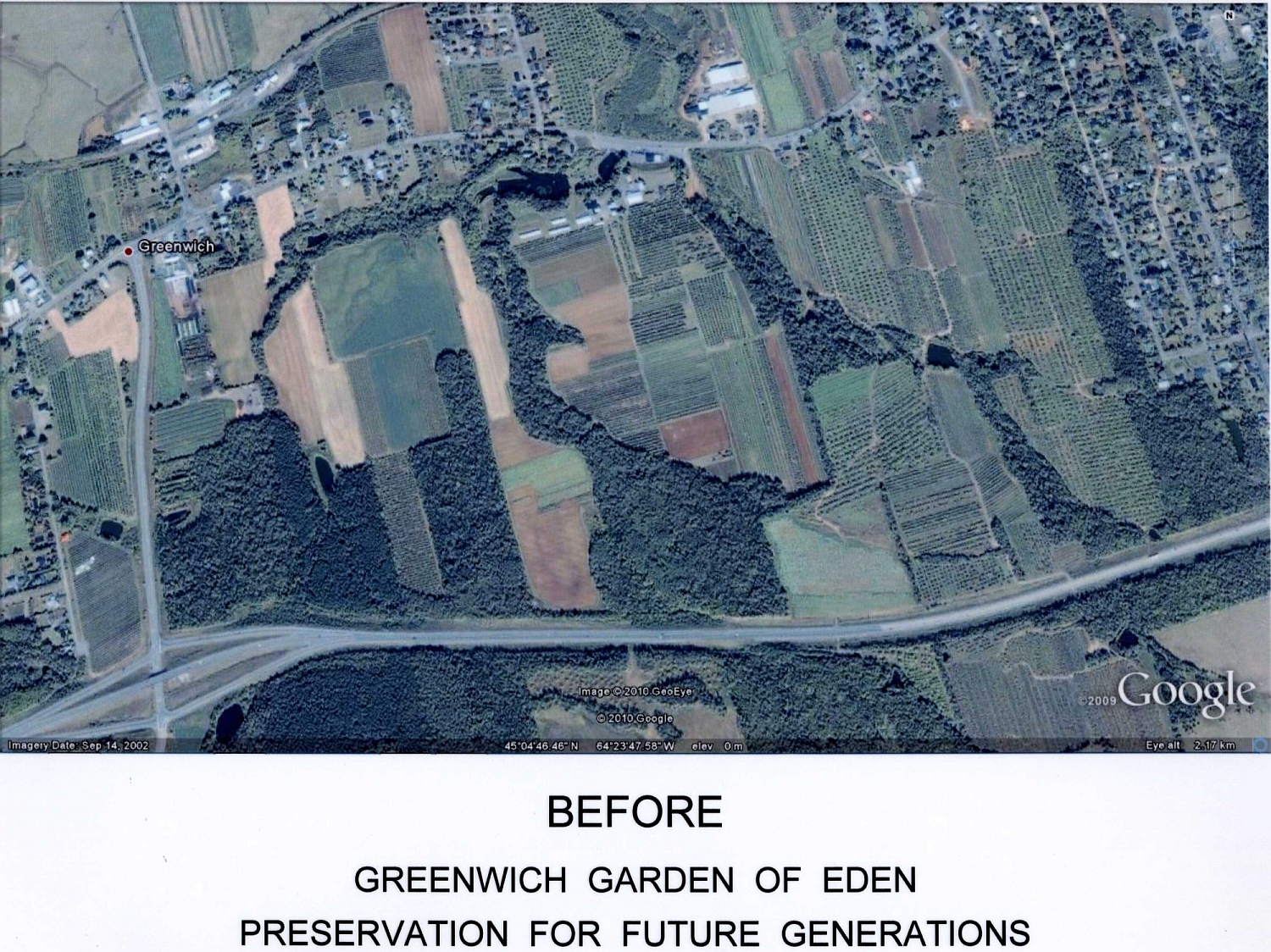by Zara Fischer Harrison
An “application to amend the planning strategy in order to rezone and redesignate” 380+ acres of prime agricultural farmland in the Hamlet of Greenwich, Nova Scotia, has been placed with a thud onto the table for the County of Kings’ Municipal council. You’d think, based on a strong reaction by residents, that the Municipality of the County of Kings is completely zoned out. There are a handful of farmers sick and tired of being outside the official Hamlet, which leaves them without any hookup to water, sewage and other infrastructure, of which their immediate neighbours have full access. These farms are on the main thoroughfare between Wolfville and New Minas, the shopping capital of the Annapolis Valley. Situated right in the heart of an agricultural tourism go-to for people from Halifax and elsewhere in the province, this is a big deal.
This big deal gets broken down into pieces pretty easily:
- The vast majority of people involved in the lobbying of council regarding this rezoning issue are against it. Hundreds of them (including the famous Raging Grannies).
- The farmers applying for rezoning would like to have their retirement fund (a.k.a. their land) to be made more valuable by offering potential buyers the opportunity to develop, or by being able to develop the land themselves. “Develop” being a term difficult to get one’s head around, since orchards and fields of bountiful food seems like the most forward thinking of developments, and they already exist.
- The City Council has put A LOT of time, money and effort into having a report drafted and a plan constructed that would see the land become a mixed use parcel including the token, mysterious and greenwashed “Urban Agriculture” plots tucked up against residential, commercial and the community commercial zones.
Planners and consultants have been employed in an effort to make the best decision for the community. The County of Kings, a municipal body seeming to be very interested in increased tax revenue and developing infrastructure. It also seems to many in the region, to be a municipal body neglecting any sort of food insecurity Nova Scotia is bound to face as prime agricultural land is consumed and rezoned. This could be a bit unfair, really, it’s hard to take a firm stance on one side of the issue or the other. The farmers involved in this case wish to remain farmers, at least for a little while longer before they retire. Potential buyers of the land might not. The precedent set, if the decision is made to take the highly productive land out of production, is daunting.
Who are we, the neighbours and zealous, local-food advocates, to tell the farmers what they are or are not allowed to do with their land? It’s no secret that farming is far from as profitable as the potential sale of the millions of dollars of land that it employs. Developers are chomping at the bit to dig, build and sell multi-car garaged homes, and farmers are keen to cash in if they can. But, the precarious result of rezoning, whether the farmers remain farmers, or whether they take the money and run means inevitably fewer arable acres in the heart of Nova Scotia’s fertile valleys.
So what’s the solution? Well, just like everything worth arguing in life, there is no easy answer. We live in a democratic, free-enterprising state. So telling others what they can and can’t do with their land is counter-culture. Letting a couple of current land owners make a call for generations to come is irresponsible as well. There is one other potentially more appropriate option, and many community members are advocating for a community land trust to be developed, and quickly, to purchase the acreage and maintain, in perpetuity, its agricultural use.
Unfortunately, there is not yet a centralized land trust established in Nova Scotia. The Department of Natural Resources has, as of 2009, gone about hiring its own consultants to conduct community consultations to find out if there is any interest in establishing one. What a community land trust could offer to interest groups, is a central pool of resources and potential funding leads to purchase lands that are important to communities in one way or another. The information offered by them consultants, was more geared toward recreation and conservation uses, as it has been on other places historically, but there is no reason that the Province shouldn’t get its hands dirty with agricultural land, as well. It is in multi-departmental interest to make sure the local food system is protected and given a boost. With so many migrant farm labourers and a slight resurgence of young farmers on the scene, there are sure to be willing tenants for publicly owned agricultural lands.
On January 18, 2011, the council voted to defer the decision based on new information and sentiments offered by residents and experts that illuminated glaring issues in the proposed land use plan presented. This is excellent news, and although the tireless plight to convince council to reconsider other options will continue, likely for years to come, at least they are listening to the hundreds of concerned citizens and putting food security and environmental considerations onto the agenda.
 Splitting her time between Toronto and Wolfville, Nova Scotia, Zara Fischer-Harrison is a perpetual pupil of all things food. She works and plays in various capacities in the good food movement. Read her blog at http://foodandpassion.wordpress.com/
Splitting her time between Toronto and Wolfville, Nova Scotia, Zara Fischer-Harrison is a perpetual pupil of all things food. She works and plays in various capacities in the good food movement. Read her blog at http://foodandpassion.wordpress.com/









According to the CBC, it was just announced that on Tuesday, Feb. 1, 2011, Council has approved the rezoning. Candlelight vigil held by No Farms No Foods. Many disappointed and disillusioned in the Valley this evening.
http://www.cbc.ca/canada/nova-scotia/story/2011/02/01/ns-farmland-rezoning-approval.html
It’s a shame. It really is. Why don’t we value farmland in this country? (I note there are very few story books about big box stores and strip malls in my young children’s library.) – Malcolm
This just in from the Province!!! There is still hope!!!
Service Nova Scotia and Municipal Relations March 23, 2011 12:12 PM
Service Nova Scotia and Municipal Relations Minister John MacDonell, today, March 23, announced his decision to turn down an application to re-zone agricultural land in Greenwich to allow development.
The application was rejected because the Municipality of the County of Kings did not demonstrate the need for the additional land.
“While I am satisfied by the municipality’s explanation that they would do all that was necessary to protect the Town of Wolfville’s drinking water supply, there was no demonstrated pressing need for development of this protected agricultural land,” said Mr. MacDonell.
The municipality applied to have 153 hectares of land, which lies between Greenwich and Wolfville, re-zoned from agricultural to residential and commercial.
The Statement of Provincial Interest about agricultural land requires municipalities to preserve valuable farm land where reasonable. The statement is intended to serve as a guiding principle to help government departments, municipalities and people make decisions about land use.
When a municipality wants to change its planning documents, a provincial review is required under the Municipal Government Act.
In 2010, the province allowed 24 hectares of agricultural land in nearby Port Williams to be re-zoned to allow for development.
The minister said that the province will consider any future applications from municipalities for re-zoning as long as the application clearly demonstrates the need for the additional land.